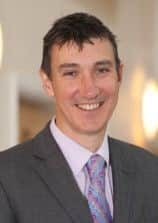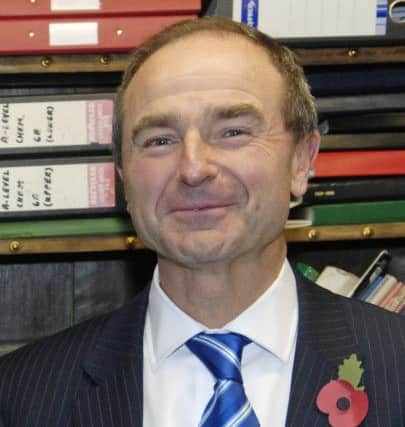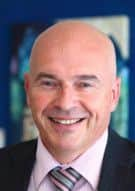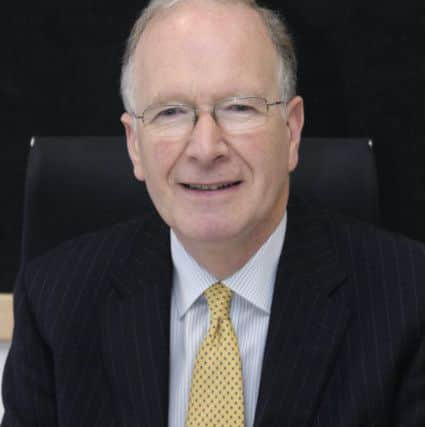TALKING HEADS: What they think about GCSE reforms


The government is instituting huge changes to the way a child’s school education is tested after 26 years of GCSEs and coursework.
Below, six headteachers from across the district have their say about the effect of these dramatic adjustments on their students.
Advertisement
Hide AdAdvertisement
Hide AdCoursework has already been phased out at Key Stage 4 when GCSE exams are taken and, from September 2012, modular assessments were replaced by terminal exams - so called as they take place at the end of the two year course in specific subjects.


This was to end what the then Education Secretary Michael Gove called a ‘culture of resits’ that gave students the chance to be tested more than once.
Now, schools are preparing for a number of further changes to make testing more ‘rigorous’, stretching pupuls and addressing ‘the pernicious damage caused by grade inflation and dumbing down’, according to Mr Gove.
English and maths exams will be subject to this ambitious move from September 2015, with modern languages, history, geography, and the sciences to follow in 2016.
Advertisement
Hide AdAdvertisement
Hide AdFrom summer 2017 the way GCSEs are graded will also change radically in a shift away from the recognised A*-C grades to a numerical system, ranking results from nine (being the best) to one.


It has been revealed that this particular measure from Ofqual will mean fewer than three per cent of students could achieve the top mark.
A Department for Education spokesman told the Harrogate Advertiser: “We are reforming GCSEsso young people can be confident that they are taking high-quality exams that will equip them with the skills most in demand by universities and employers so they are prepared for life in modern Britain.
“We believe it is right that changes are made as soon as possible to benefit the most young people, and we are confident that all the reforms can be implemented within our planned time frame which is a testament to the dedication of our high-quality teaching profession.”
Advertisement
Hide AdAdvertisement
Hide AdThe implementation of these changes is causing concern among headteachers across Harrogate, Ripon, Knaresborough, Nidderdale, and Wetherby, and they told the Harrogate Advertiser Series why they are so worried.


See next week’s newspaper to see what many more headteachers have to say.
Harrogate Grammar School head Richard Sheriff said: “It may provide greater definition at the top end by having a greater number of incremental points along the way, but I don’t see the need to further define above A*.
“The system helps in some ways in terms of processing grades - numbers are easier to deal with than letters - but it is really not very exciting.
Advertisement
Hide AdAdvertisement
Hide Ad“What is more interesting is the whole format of the examinations and the death of modular assessments, the discouragement of early entry, the focus on linear examinations, and the loss of coursework. If you are looking to assess people more holistically in terms of what they know and can do I don’t think you would choose a terminal examination, but I think what the examination boards are trying to do is balance reliability with efficacy, and that is really hard.


“We do really well as a school, so we don’t need reform of the education system to improve student outcomes. In a sense what we have got to do is protect our students from the changes and make sure they continue to do well.”
St John Fisher RC High School head Rob Pritchard said: “Broadly I do think the changes that came in were necessary.
“Modular exams were introduced a number of years ago in maths and over the last 15 years more and more subjects became modular and it has become a little bit of an exam factory with constant challenges, in some schools but not necessarily John Fisher, to keep resitting and resitting, so I am broadly supportive of fewer examinations and giving us more time to actually teach the youngsters.
Advertisement
Hide AdAdvertisement
Hide Ad“However, for some young people having more than one chance to sit an exam is positive. It can boost their self-confidence and it can enable them to realise they can actually achieve if they want to.
“The one size fits all approach the government has got is not therefore the best approach.
“I am in no doubt that over a number of years there has been a grade inflation and we do need to keep the standard in there, but I think the problem in the future with the one to nine grades is that only a certain percentage will get the top and I am not a big fan of that.”


Ripon Grammar School head Martin Pearman said: “We will be significantly affected like every other school so we are looking to manage that as best as we can for the students as we always do.
Advertisement
Hide AdAdvertisement
Hide Ad“The existing system serves us fairly well if I’m honest. We have obviously got a very bright intake of students here but it isn’t every single student getting straight A*, so I think this system is perfectly able to discriminate between the most able and the hardworking students who maybe can’t achieve such a level.
“From that perspective I don’t really welcome the change and I don’t think it is helpful.
“I am a great fan of modular assessments, I think they have worked very well to motivate students and if you see attainment rise as a result it is because the system has motivated them. It is not fair to say it has created a system that is easier. The nature of the real changes all happening at the same time hasn’t been very well organised or very well thought through and I think it ultimately will have some repercussions down the line and that is quite worrying.”
Harrogate High School head Andrew Bayston said: “I think it is important to look at the reasons why those changes have been brought in.
Advertisement
Hide AdAdvertisement
Hide Ad“We want high standards and expectations that are met in our examination system, so I can’t disagree with the intention behind that.
“I think some of the difficulties have been due to the speed that those changes have been made.
“We want to provide a broad and a balanced curriculum and the examination system can give us the scope to personalise that learning for each individual, and we are dealing with individual students here and it is their life chances that are often given a major uplift by being successful in those exams, so it is an important part of our work and I have no particular issue with the aim behind the changes.
“I don’t feel the grade changes are necessary. There are always students who will achieve the highest grade but the exam system needs to be inclusive and offer something to all young people, so one size doesn’t fit all. The critical factor is how these changes are managed, and I think our young people deserve the respect of joined-up thinking from the policy makers.”
Advertisement
Hide AdAdvertisement
Hide AdSt Aidan’s CE High School head John Wood said: “They were big changes of course, because with modular exams the amount of work students had to learn was not as great as with linear exams right at the end of the course, but at the same time the process we have put in seems to have worked quite well and, based on their results, the students have coped with it.
“It is possible that it did need tweaking, I have to be honest, when students can take exams again and again it went too far down one extreme.
“We now seem to have gone the full circle back to linear exams and it makes me wonder in five or 10 years time whether people will be questioning whether we should have modular exams and coursework.
“We are aware of these changes and we are in a very good place to cope with changes, but we do recognise that they are going to be more challenging and more rigorous, but we have been building towards that.
Advertisement
Hide AdAdvertisement
Hide Ad“After the election has taken place we would like to have a little bit of stability in education after a time of upheaval and it would be good, dare I say it, to have five or six years without any big changes.”
Wetherby High School acting head Lucie Lakin said: “I think the move to linear exams demonstrates a clear raising of the bar for children and I think that is something we welcome and are prepared to work with students to help them meet that expectation.
“Equally we recognise that to some degree it has put GCSEs in line with expectations for further and higher education and we want to be supportive of that.
“The clear framework that we ask our children to work under is that they all work under their own individual targets as best as they can. I think it is disappointing that a system instils a competition between students.
Advertisement
Hide AdAdvertisement
Hide Ad“One area of concern is that the government will be making sure there will be adequate support from the exam boards so schools are able to prepare children in the way they want.
“Some of the changes feel like they have been hurriedly implemented, so it is a case of ensuring the exam system allows students to succeed and doesn’t trip them up.”